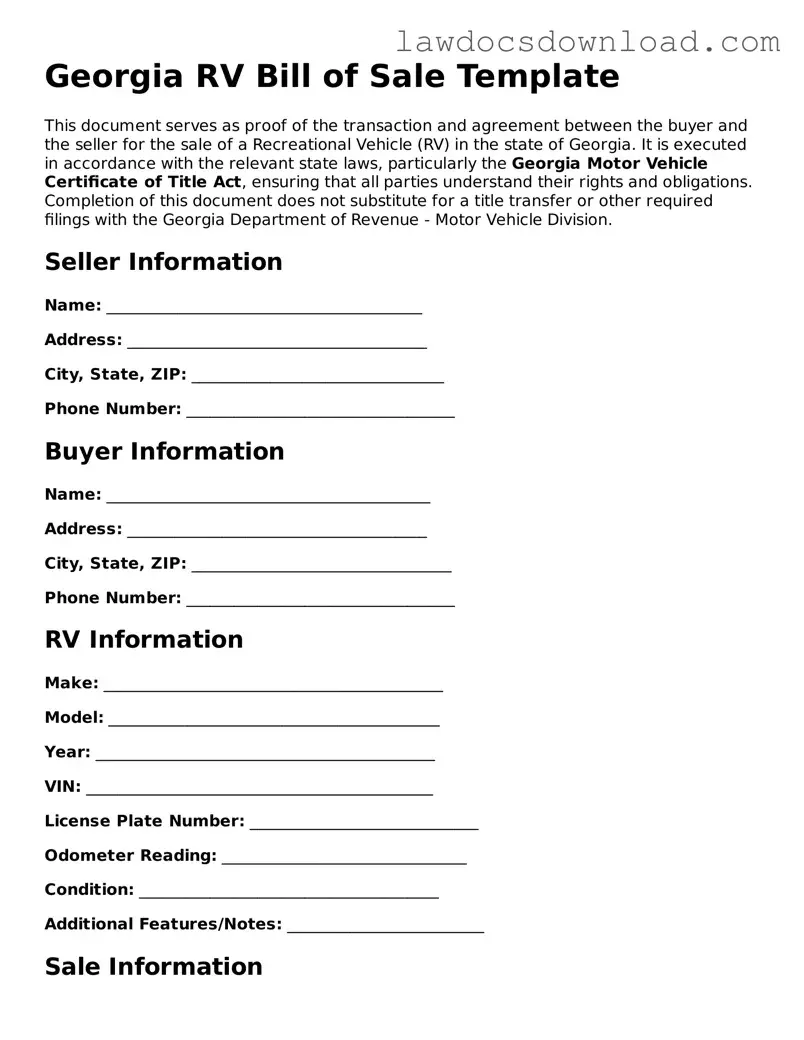Georgia RV Bill of Sale Template
This document serves as proof of the transaction and agreement between the buyer and the seller for the sale of a Recreational Vehicle (RV) in the state of Georgia. It is executed in accordance with the relevant state laws, particularly the Georgia Motor Vehicle Certificate of Title Act, ensuring that all parties understand their rights and obligations. Completion of this document does not substitute for a title transfer or other required filings with the Georgia Department of Revenue - Motor Vehicle Division.
Seller Information
Name: ________________________________________
Address: ______________________________________
City, State, ZIP: ________________________________
Phone Number: __________________________________
Buyer Information
Name: _________________________________________
Address: ______________________________________
City, State, ZIP: _________________________________
Phone Number: __________________________________
RV Information
Make: ___________________________________________
Model: __________________________________________
Year: ___________________________________________
VIN: ____________________________________________
License Plate Number: _____________________________
Odometer Reading: _______________________________
Condition: ______________________________________
Additional Features/Notes: _________________________
Sale Information
Date of Sale: ___________________________________
Sale Price ($): _________________________________
Warranties and Agreements
- The seller states that all information regarding the RV's condition, features, and prior use is accurate to the best of their knowledge.
- The seller warrants that the RV is sold free from all debts, liens, and encumbrances.
- The buyer accepts the RV "as-is", with no warranties beyond those stated.
- The buyer and seller agree that this bill of sale represents the entire agreement between them concerning the sale of the RV. Any modifications to this agreement must be done in writing and signed by both parties.
Signatures
Once signed, this bill of sale will act as a legal document evidencing the transfer of ownership from the seller to the buyer. It is advisable for both parties to retain a copy of this document for their records and any future disputes or discrepancies.
Seller's Signature: _______________________________ Date: _______
Buyer's Signature: ________________________________ Date: _______
Notary Public (if applicable):
State of Georgia, County of _____________________________
On this ____ day of ___________, 20__, before me, _______________________________, a notary public, personally appeared _______________________________, known to me (or satisfactorily proven) to be the person(s) whose name(s) is/are subscribed to the within instrument and acknowledged that they executed the same for the purposes therein contained.
In witness whereof, I hereunto set my hand and official seal.
Notary's Signature: _____________________________ Date: _______
Commission Expires: ____________________________

